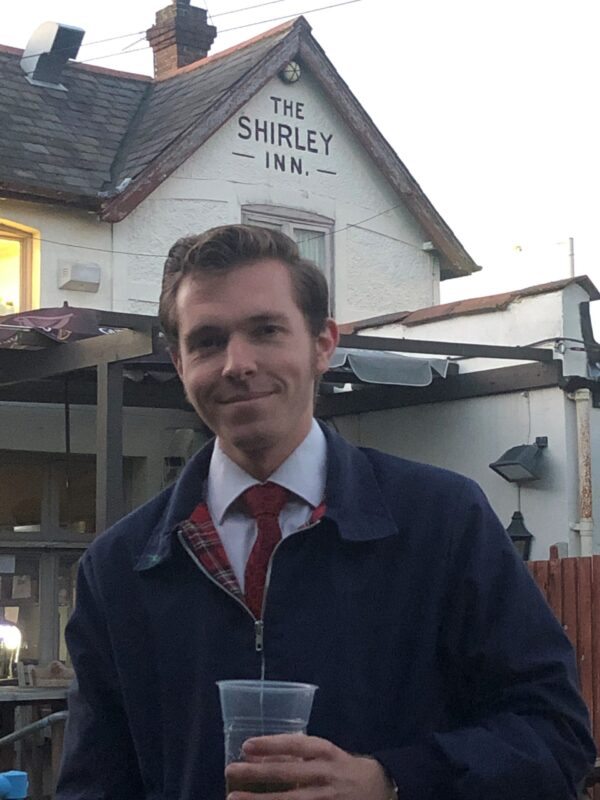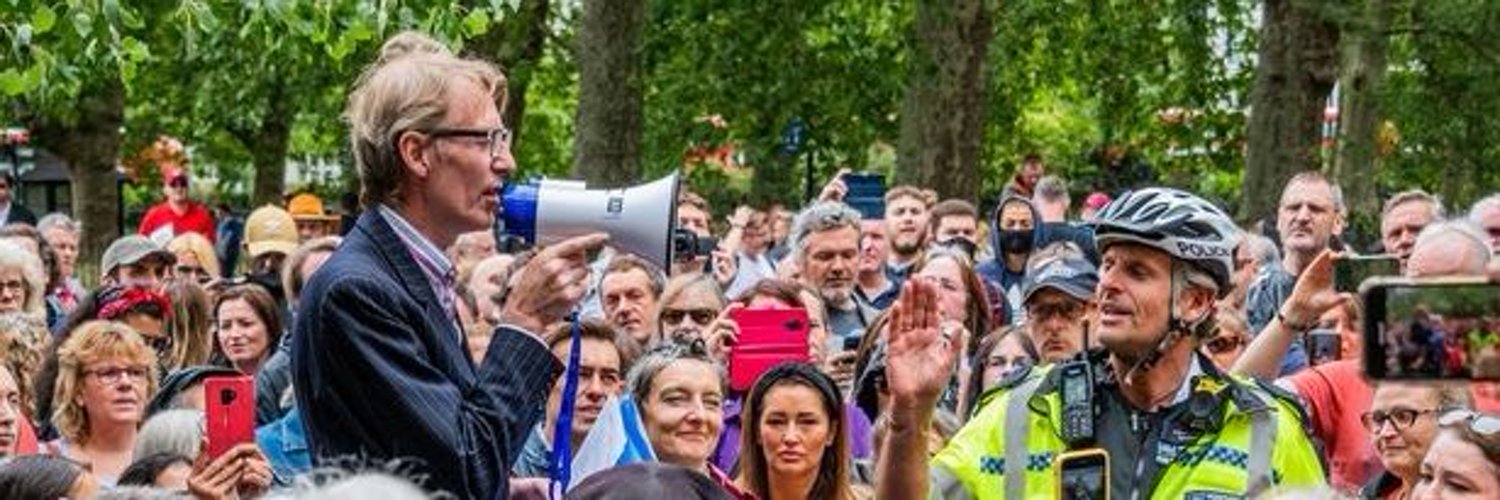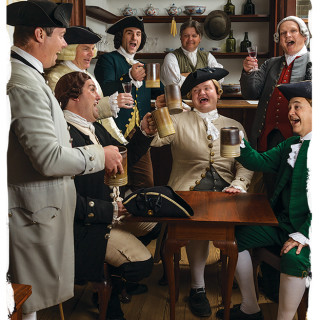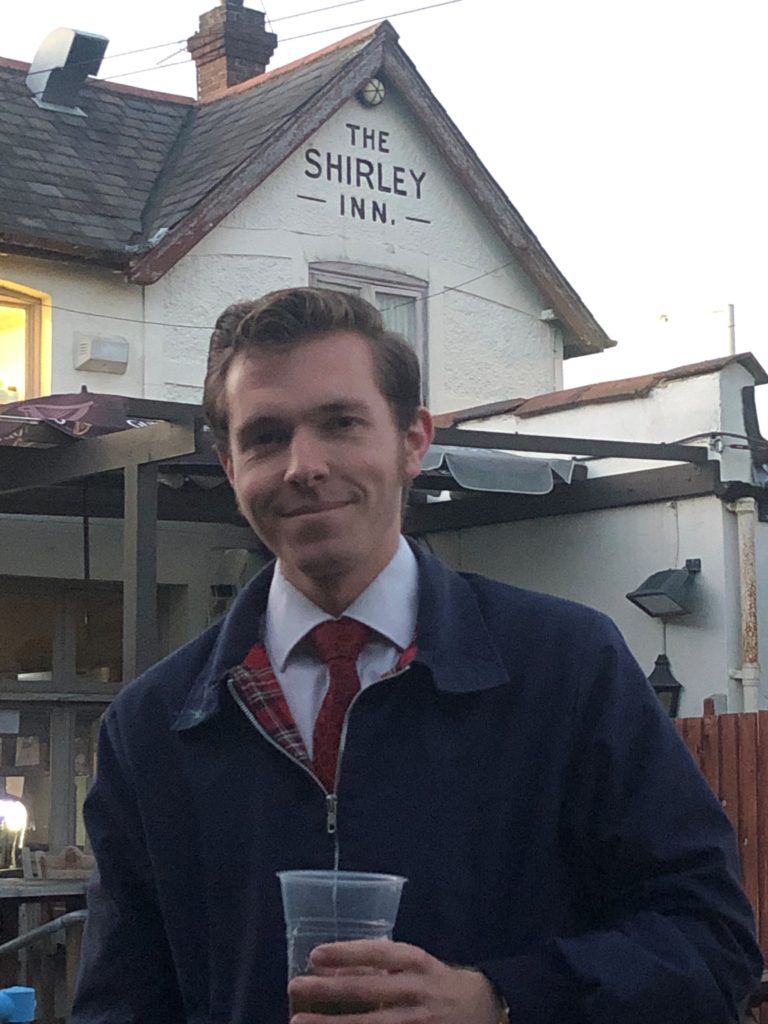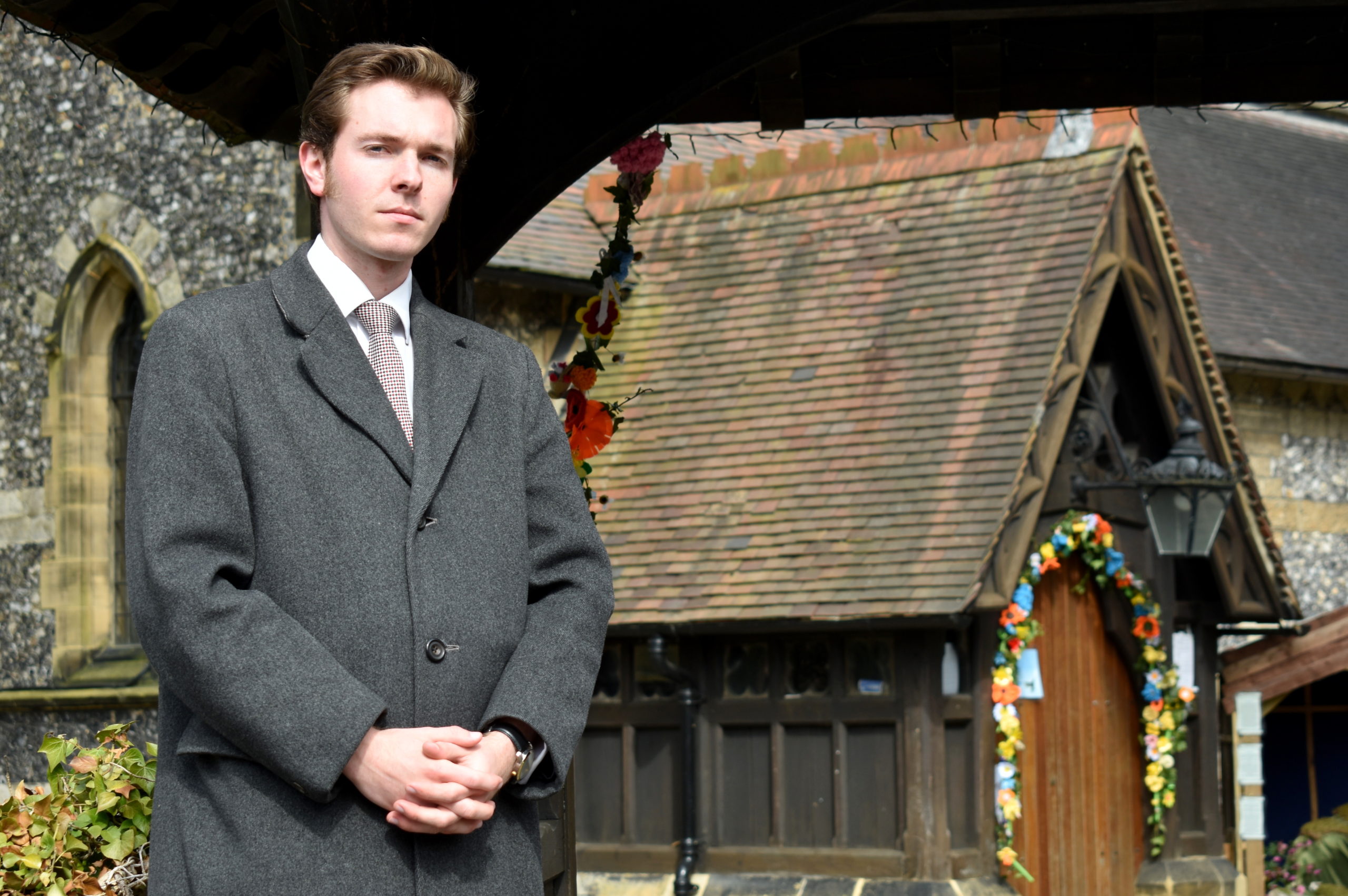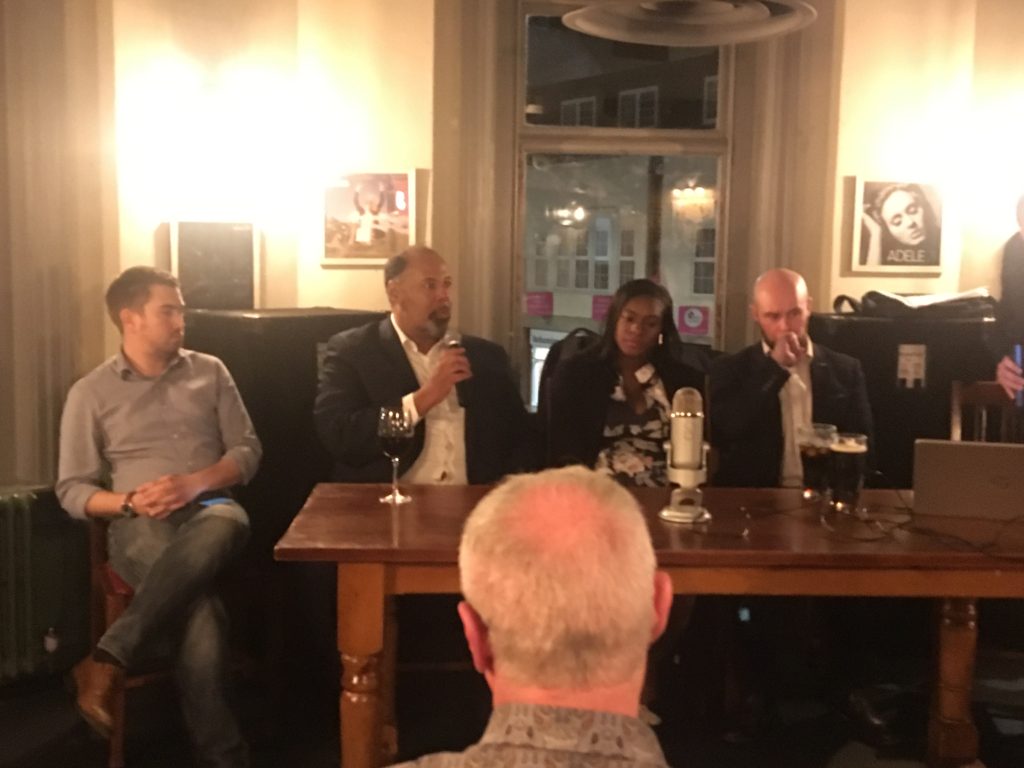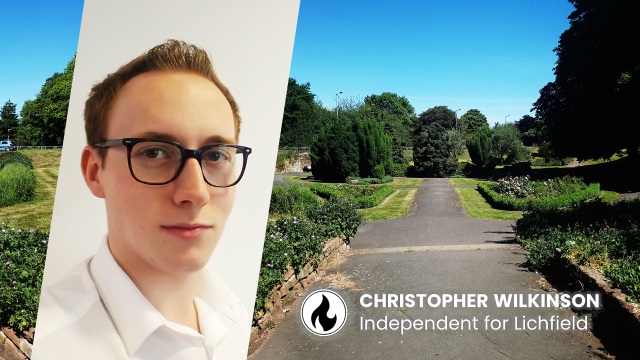In May this year a council by-election was held in Kenley. We spoke at the time to the Heritage Party candidate Zachary Stiling, and had him on our pubcast.
His responses to the prepared questions are below, and give a good insight into the candidate, and the party, ahead of next years London wide local elections.
“In 2016, the council gave £4 million to Boxpark despite local business owners’ fears it would damage their trade. Local, independent businesses play a much more important role in a community than national and transnational corporations”
What do you see as the most important priorities for the people of Kenley? And how will you help deliver on these priorities?
If I may take a minute to introduce myself and the Heritage Party, the party was founded in May 2020 by London Assembly Member David Kurten. We are a socially conservative party founded to champion civil liberties and traditional family values. On a national level, we oppose lockdowns, vaccine passports and ‘woke’ cancel culture, and promote freedom of speech, free markets and individual responsibility. I am entering politics after five years as a freelance journalist and historian, and have lived in Croydon all my life. I am a conservationist at heart, having been actively involved with the preservation of historic vehicles for several years, and I am equally passionate about preserving historic architecture and the countryside. I have developed an affection for the rich history of the borough, which I believe is to be celebrated, and am committed to seeing it prosper in the future.
I believe that the rapid construction of high-density, low-quality housing is one of the greatest threats Kenley currently faces, along with the council’s cavalier disregard for the Green Belt. Housing developments are typically constructed at the expense of green spaces, historic buildings or community venues. I will address this matter in full shortly, but suffice it to say that I am wholeheartedly committed to protecting Kenley’s countryside, historic buildings and community facilities, and I will object to all developments that do not meet the very highest standards.
Often in winter, Kenley suffers from severe flooding, a problem which, incidentally, is likely to increase with more housing, as more hard-standing will prevent water infiltrating the soil and lead to surface run-off into the valleys. Croydon Council was unable to fulfil its planned flood-prevention measures as a result of its bankruptcy in November. Now that the council has been bailed out by the government with £120 million, I will make flood prevention and infrastructure improvements in Kenley a priority.
I am also conscious that many workers in Kenley, especially small-business owners and those working in hospitality, will have suffered severe financial damage because of the lockdown. In 2016, the council gave £4 million to Boxpark despite local business owners’ fears it would damage their trade. Local, independent businesses play a much more important role in a community than national and transnational corporations, and I will see that they are prioritised for grants and loans.
“I am wholly committed to the protection of the countryside and the need for new houses to meet high standards of construction and beauty. I will not approve any development planned for a greenfield site, nor any developments that are ugly and which will have a negative impact on quality of life”
Many people in Kenley are concerned about a rise in housing developments in Kenley – How do you respond to these concerns and if elected, what would you do?
Kenley residents are quite right to be sceptical about housing developments and I share their concerns. Repeatedly over recent years, the council and developers have done great harm to communities with unsympathetic, sometimes barely habitable, housing developments, while the objections of local residents have been ignored. In Kenley’s case, new developments are almost always detrimental to the local character of the area and create longstanding damage.
In January 2020, the council approved plans for a block of nine flats on Welcomes Road, a road occupied only by one- and two-storey interwar properties, ignoring residents’ objections. Then, in May, the council’s in-house developer, Brick by Brick, unveiled plans to build a block of flats on Reedham Park Avenue which contravened the regulations outlined in the council’s own Local Plan. I am fully aware that Croydon is under a lot of pressure to supply affordable housing, but the rapid construction of cramped flats is little more than cheap tokenism, and it is especially wrong in an area like Kenley, which people enjoy for its green spaces, natural beauty and high standards of suburban architecture. In many cases, Croydon’s new housing developments are not affordable for first-time buyers anyway, and are inadequately provisioned.
I spoke today to a disabled lady in social housing who complained that her house has had a serious leak for some time, but the council showed no interest in helping her repair it because it wasn’t what they considered to be an ‘emergency’. The council lazily cited coronavirus as an excuse for not responding to her complaints and, on the occasion when someone was sent to investigate, he informed the resident that the leak was ‘not his department’. One would like to think of this as an isolated problem, but the scandal of the Regina Road flats in South Norwood tells us that it is not. This is the inevitable legacy of trying to cram as many people as possible into the tightest possible space for the cheapest possible price, and it will persist into the future unless there is immediate change to the council’s attitude to housing. Not only that, but it won’t be a problem that exclusively affects social housing tenants; Croydon Council has built very little social housing of late, preferring instead to sell land to developers for private accommodation. The principle of cramming in as many people as possible at the lowest price still applies, but, instead of being awarded to the needy, the houses are being sold for a premium.
Equally worrying is the council’s attitude towards the Green Belt, which it sees as an obstacle to yet more development. Having already sacrificed 27 acres of Green Belt land for a hideous new school building in South Croydon, the council again revealed plans to eliminate sections of Green Belt in Sanderstead, Selsdon and New Addington for 6000 houses. Thankfully, Kenley has not yet been earmarked for anything so destructive, and I will defend its open spaces tooth and nail to see that Kenley residents may always have access to nature, which is so vital for our wellbeing. I am always receptive to the views and criticisms of the Campaign to Protect Rural England, who understand the importance of the Green Belt better than many councillors.
I am wholly committed to the protection of the countryside and the need for new houses to meet high standards of construction and beauty. I will not approve any development planned for a greenfield site, nor any developments that are ugly and which will have a negative impact on quality of life for Kenley residents. With Croydon’s town centre already suffering from a severe affliction of high-rises, the only new housing schemes I will support will be ‘gentle density’ ones. Brick by Brick has been an unaccountable, loss-making failure, and I will campaign for it to be scrapped. On a national level, the Heritage Party will invest in towns in the North and in the Midlands which are neglected by Westminster, thereby relieving the pressure on London for housing.
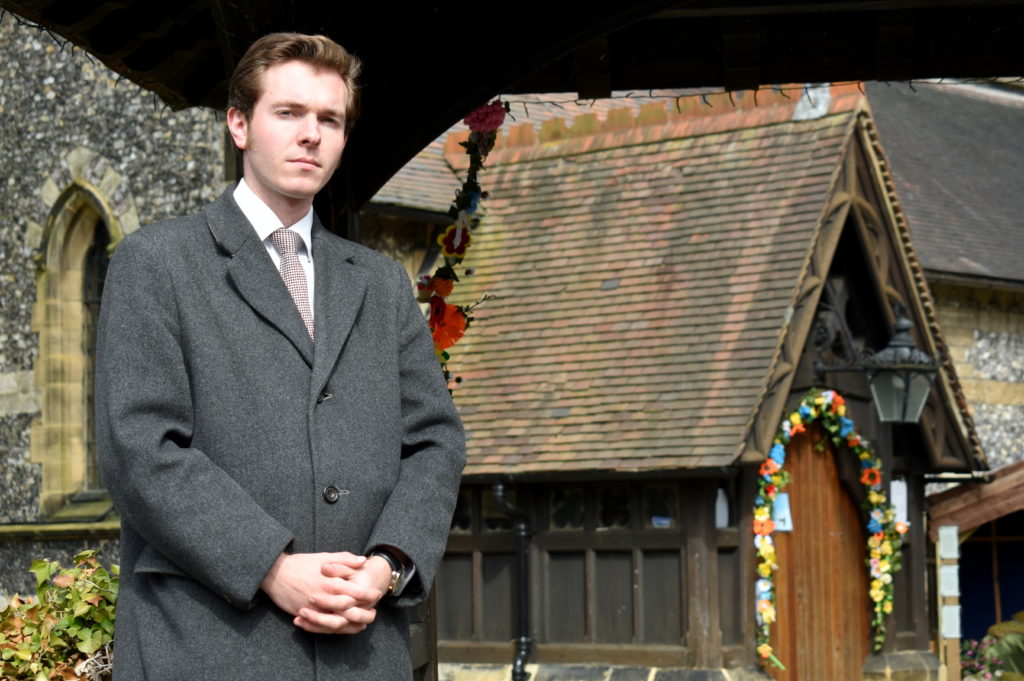
“With 16 council workers still on over £100,000 per year (compared to 10 in Sutton, nine in Merton and nine in Bromley), this is where the first cuts should be made so that civic improvements can be prioritised”
Croydon Council have stated that they face a £64.2 million gap in funding this year and that this inevitably means cuts to services; what do you consider are vital services in this community and how will you ensure that these services are retained?
The nature of Kenley, with many houses built on spacious plots with large gardens, makes the council’s garden waste collection a valuable service. Although garden waste collection already comes with a cost of £68.29 per year, and is therefore not likely to be scrapped, it ties in in an important way with fly-tipping because a lot of people decide to fly-tip because they find it preferable to paying for waste disposal. I am confident that, if the council’s finances were managed well, the cost of the service could be reduced or even assimilated into the cost of council tax.
Kenley has the good fortune of being a quiet area with a semi-rural feel in places. Sadly, the downside of this is that it is attractive to fly-tippers, who feel they can get away with dumping their waste without being seen. To this end, the council’s fly-tip reaction teams, who work with council enforcement officers to catch, fine and prosecute offenders, are a valuable part of the council’s operations. It is just a pity that in the past the council has pursued fly-tippers with more enthusiasm than honesty – several people, including a family member of mine, have been issued with fixed-penalty notices from the council, for which there is no option of appeal, because they attempted to dispose of waste at council recycling sites which were overflowing from where waste collections had been neglected.
I am interested in targeting real fly-tippers only, and I believe no fixed-penalty notices should be issued unless there is proof of an offence having been committed. I will make sure the fly-tip reaction teams operate justly and efficiently. I also believe they should have more of a presence in public so as to deter people from fly-tipping in the first place but also to catch people who drop litter, who so often evade justice. Littering is a vile habit for which there is no excuse, and a blight on many communities. Dropping litter carries a fixed-penalty fine of £150. I will strive to see that this is enforced to the fullest extent, albeit only with proof of the offence being committed.
Obviously, when fines are generated, enforcement teams will pay for themselves to some extent, but I do not believe it is prudent to rely on fines as a source of income, and that mentality is what encourages councils to set targets for revenue from fines, to be met by hook or by crook.
When a council is struggling to meet the needs of its citizens, it ought to look to itself to make cuts before it strips the public of services. With 16 council workers still on over £100,000 per year (compared to 10 in Sutton, nine in Merton and nine in Bromley), this is where the first cuts should be made so that civic improvements can be prioritised. Croydon Council could save thousands of pounds each year by not overpaying its senior staff.
“residents are aware of Kenley’s magnificent heritage. At present, Croydon Council does not seem to be very proud of the borough’s history but it is an aspect I would like to promote”
The Kenley Community Plan was successful in a bid for GLA funding to deliver projects that connect and improve Kenley. What new and existing projects do you think will connect and improve Kenley?
Dare I say that there is not much to improve? Residents of Kenley are generally very proud of their neighbourhood and the council’s attempts to interfere with it, especially where housing developers are concerned, are often very unwelcome.
However, it is clear that because Kenley is a bit out on a limb compared to other areas of Croydon, residents are too dependent on cars and would appreciate better public transport links. A lot of residents have complained of heavy traffic in the area, cars driving too fast, and lack of provision for parking, while also finding that public transport is overcrowded. I believe Croydon Council needs to work with Transport for London to discuss the provision of a more regular bus service in Kenley. There is no convenient public transport between the southern part of Kenley and central Croydon. A regular bus service from the town centre to Kenley Common would be advantageous for residents and would make Kenley a destination for walkers, who could combine a visit to Kenley Common with Coulsdon Common and Riddlesdown, and spend money in local pubs and cafés.
I would like to consult with residents about improvements to Kenley’s road layout. Speed bumps are never a clever means of slowing traffic down as they shorten the life of a car’s suspension and contribute to air pollution as they force drivers to move through the gears and rev their engines. Chicanes are a far more sensible approach and could be employed in redeveloping Kenley’s roads for the better. All this, of course, is in addition to the improvements needed to mitigate the effects of flooding, which I will resume at the nearest possible instance.
As stated already, residents are aware of Kenley’s magnificent heritage. At present, Croydon Council does not seem to be very proud of the borough’s history but it is an aspect I would like to promote. Besides being of general interest to residents, I believe promotion of Croydon’s historic buildings and institutions would encourage visitors and benefit local trade. I have been drawn to Kenley Aerodrome on a number of occasions when it has hosted events and always felt I have had a good day out. The Aerodrome’s events would, I am sure, attract many more people to Kenley if decent public transport made it more accessible.
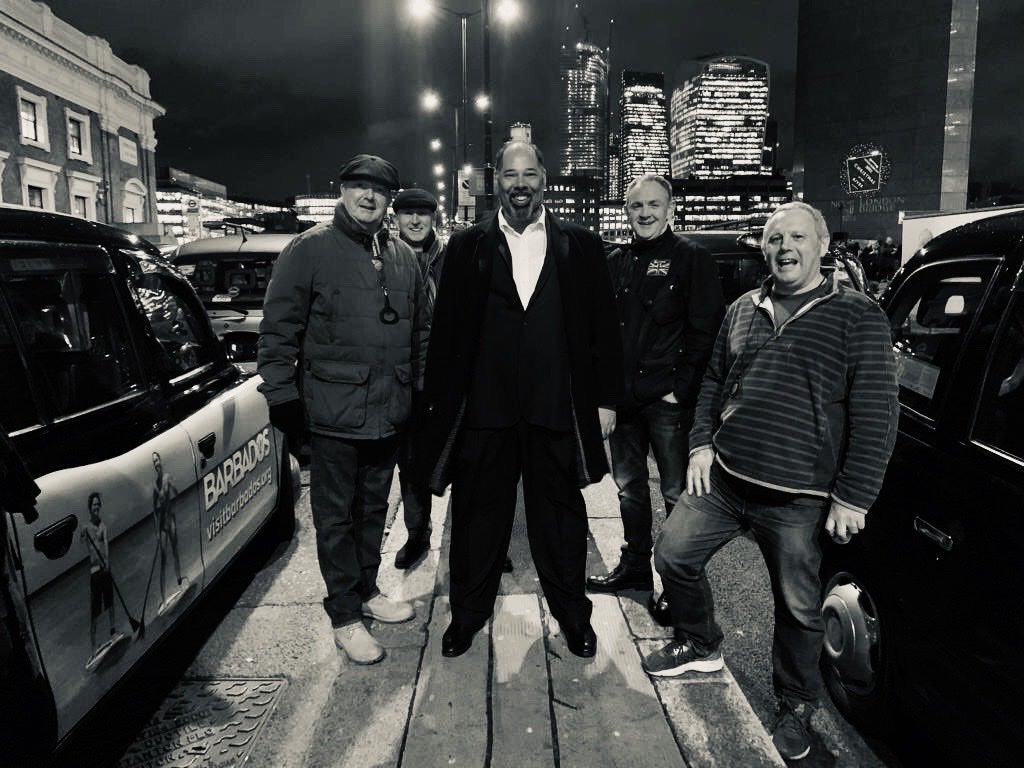
“Young people generally should be encouraged in their hobbies, not demonised; overbearing regulations are the death of creativity in the young”
Local Youth and Children’s work providers Play Place ask ‘within the youth sector we are increasingly concerned about the lack of positive diversionary activities, poorer transport links and an amplified sense of deprivation for small communities in the south of the borough. How might we best respond to this?’
This is a subject I feel very strongly about, as I have been trying to raise awareness locally of the problem of young people riding motorcycles around my local woodland. Let me say, so that there is no doubt, that I do not condone this activity for an instant. Riding motorcycles in a space shared by dog-walkers and young children is clearly dangerous and irresponsible and has the potential to go horribly wrong. But let us try to understand our fellow man. The young people riding these motorcycles are not wilfully trying to harm anyone, they are simply trying to indulge a hobby for which there are absolutely no proper provisions. And I will say that, as a hobby, I absolutely do condone off-road motorcycling. Through riding off-road, motorcyclists are able to learn a lot about controlling their machines, all of which serves to make them much safer riders on the road than someone who buys a motorcycle merely for ease of commuting. Plus, as enthusiasts, they are learning about engineering and mechanics and developing practical skills which are not encouraged in schools, and that helps to cultivate an ethos of individual responsibility.
Much has been said lately about the Valley Park car meets, where young car owners display their modified vehicles. Undoubtedly, there is an antisocial aspect to this when drivers rev their engines incessantly and engage in dangerous driving, but this is not justification for trying to ban the car meets entirely. With proper measures in place to ensure safe driving and peaceful behaviour, they could be a great addition to Croydon’s culture, generate visitors and improve local spending. This has been the case in the past with the Chelsea Cruise, the monthly parade of classic, custom and American cars that has been taking place on the last Saturday of the month since 1975. For a time in the early 1980s, the Greater London Council embraced the cruise because it was a popular public event and drew thousands of spectators to the King’s Road. Sadly, that has been in decline as the green agenda that has been prevailing in London for several years has been hostile to motorists irrespective of whatever historical, cultural or aesthetic contribution they may make, and the expansion of the Congestion Charge zone may sound the death knell for the Chelsea Cruise.
Sad though that would be, it is obvious that there is sufficient enthusiasm here in Croydon that we could have our own safe, well-attended Croydon Cruise. The scale of it means that it would necessarily require some policing but so long as people drive safely and do not make a public nuisance, it is something the council ought to encourage. Young people generally should be encouraged in their hobbies, not demonised; overbearing regulations are the death of creativity in the young. As it stands, the council’s current failure to provide adequate facilities for young people and the punishment of them when they try to entertain themselves has all the hallmarks of a joyless, lazy bureaucracy.
Few people today know that Croydon once hosted a motorsports venue. All that remains of the Waddon Lido is the sad ghost of a diving stage. Many south London musicians, from Jacqui McShee of Pentangle to the Damned, started their careers on Croydon’s once thriving live music scene. McShee sang at the Olive Tree folk club and the Damned famously played at the Greyhound – both are now long gone and the current scene in Croydon is unlikely to give rise to any more great musicians. The innumerable houses springing up over the borough are apparently built with the expectation that the people living within them won’t have any hobbies to pursue.
I don’t believe Kenley is the right place for heavy development, but Croydon town centre is in dire need of facilities for the young and I will use my position in the council to encourage the development of sports facilities, hospitality venues and music venues. Sports facilities may necessarily require large amounts of space and I believe the best area for development is brownfield land close to Croydon Airport. With adequate development and improved transport links to the town centre, young people in Kenley would not be deprived of amenities anymore.

More information on the Heritage Party, including its manifesto and how to get involved, can be found at https://heritageparty.org/ or email Zachary at zstiling@protonmail.com

